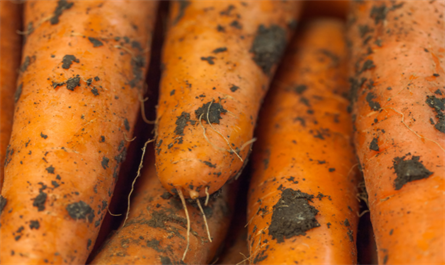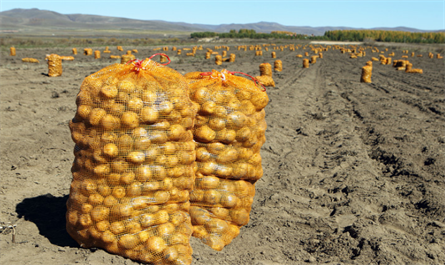Choline chloride increases the yield of underground root and tuber crops by more than 30%
Choline chloride is a choline-like plant growth regulator. When used on underground root and tuber crops, some can increase the yield by more than 30%. It is relatively low in cost and is a cost-effective product. Moreover, Choline chloride is easily decomposed by microorganisms in the soil and does not pollute the environment.
1. About Choline chloride
When used on crops, Choline chloride is a plant photosynthesis promoter. After being absorbed by the stems, leaves, and roots of plants, it is quickly transferred to the active parts, which can increase the chlorophyll content in the leaves of crops and improve the photosynthesis efficiency, thereby promoting the photosynthesis of crops and transporting the photosynthetic products to the underground tubers as much as possible, thereby improving the yield and quality of tubers.
At the same time, Choline chloride also has a certain growth control effect. Initially, it was mainly used as a growth regulator for underground root and tuber crops. In recent years, it has also been used on crops such as wheat and rice to promote grain filling, and the yield-increasing effect is also very obvious.

Product function
(1) Improve the growth activity of crops.
Choline chloride can improve the photosynthesis efficiency of crops, improve various physiological activities of crops, and enhance the plant's resistance to drought, cold, salinity, and other stresses. When used as seed dressing, it can promote seed rooting and germination, increase seed germination rate, and form strong seedlings. When used in grain crops such as wheat, it can promote ear differentiation, make the grains fuller and rounder, increase the weight and number of grains, and improve crop yields. When used in fruit trees, it can promote the expansion of crop fruits, increase the formation and accumulation of nutrients and sugars in fruits, and improve crop quality.
(2) Promote the expansion of underground rhizomes.
After being absorbed by the stems, leaves and roots of crops, Choline chloride can activate key enzymes of plant photosynthesis, improve the efficiency of plant absorption and utilization of light energy, increase the content of plant carbohydrates, protein and chlorophyll, promote photosynthesis, and inhibit the respiration of crops, reduce nutrient consumption, and transport as many photosynthetic products as possible to underground tubers, rhizomes and other storage organs, thereby promoting the expansion of underground rhizomes and rhizomes, improving crop yield and quality, and having a very significant effect on the expansion of root crops.
(3) It has a certain effect on controlling vigorous growth.
Choline chloride and Chlormequat Chloride are homologues that can inhibit the synthesis of gibberellins and can also play a certain role in controlling vigorous growth, shortening the internode distance of crops, making plants short and strong, increasing the ability of crops to resist lodging, and reducing excessive nutrient consumption of crops. However, the vigorous growth control effect of Choline chloride is not significant. If crops are growing vigorously, it should be used in conjunction with other vigorous growth control products.

3. Applicable Crops
Choline chloride is currently mainly used as a bulking agent for underground root crops such as sweet potatoes, potatoes, ginger, garlic, peanuts, yam, radish, ginseng, etc. It is also used in crops such as wheat and rice to promote panicle differentiation and filling, and is used in fruit trees such as apples, citrus, pears, Kyoho grapes, and strawberries to promote fruit enlargement, early coloring, and increase sweetness, thereby improving fruit quality.
4. Usage
(1) Choline chloride is used for underground root tuber enlargement.
At the early flowering stage of potatoes and peanuts, the 7-9 leaf stage of radishes, the three-strand stage of ginger, and the early enlargement stage of yam, garlic, onions, Chinese medicinal herbs, and sweet potatoes, use 10-20 ml of 60% choline chloride solution per mu, add 30 kg of water, and spray evenly on the crop leaves. Spray once every 10-15 days, and apply 2-3 times continuously, which can significantly increase crop yield.
2) Choline chloride is used to improve fruit quality.
Spraying 200-500mg/L of choline chloride solution on the leaves of apples, pears, and citrus fruits 15-60 days before harvest can promote fruit enlargement and increase sugar content. Spraying 1000mg/L of choline chloride solution on the leaves of Kyoho grapes 30 days before harvest can promote early coloring and increase sweetness.
(3) Choline chloride is used for seed soaking.
Rice seeds soaked in 1000mg/L of choline chloride solution can promote rooting and strong seedlings. Cabbage and kale seeds soaked in 50-100mg/L of choline chloride solution for 12-24 hours, dried and sown can increase the plant's nutrient content, promote emergence and strong seedlings.
(4) Choline chloride is used to control vigorous growth.
For soybeans and corn, spraying the leaves with 1000-1500 mg/L of the solution during the flowering stage, 2-3 leaf stage, and 11 leaf stage can dwarf the plants and increase yield.
1. About Choline chloride
When used on crops, Choline chloride is a plant photosynthesis promoter. After being absorbed by the stems, leaves, and roots of plants, it is quickly transferred to the active parts, which can increase the chlorophyll content in the leaves of crops and improve the photosynthesis efficiency, thereby promoting the photosynthesis of crops and transporting the photosynthetic products to the underground tubers as much as possible, thereby improving the yield and quality of tubers.
At the same time, Choline chloride also has a certain growth control effect. Initially, it was mainly used as a growth regulator for underground root and tuber crops. In recent years, it has also been used on crops such as wheat and rice to promote grain filling, and the yield-increasing effect is also very obvious.

Product function
(1) Improve the growth activity of crops.
Choline chloride can improve the photosynthesis efficiency of crops, improve various physiological activities of crops, and enhance the plant's resistance to drought, cold, salinity, and other stresses. When used as seed dressing, it can promote seed rooting and germination, increase seed germination rate, and form strong seedlings. When used in grain crops such as wheat, it can promote ear differentiation, make the grains fuller and rounder, increase the weight and number of grains, and improve crop yields. When used in fruit trees, it can promote the expansion of crop fruits, increase the formation and accumulation of nutrients and sugars in fruits, and improve crop quality.
(2) Promote the expansion of underground rhizomes.
After being absorbed by the stems, leaves and roots of crops, Choline chloride can activate key enzymes of plant photosynthesis, improve the efficiency of plant absorption and utilization of light energy, increase the content of plant carbohydrates, protein and chlorophyll, promote photosynthesis, and inhibit the respiration of crops, reduce nutrient consumption, and transport as many photosynthetic products as possible to underground tubers, rhizomes and other storage organs, thereby promoting the expansion of underground rhizomes and rhizomes, improving crop yield and quality, and having a very significant effect on the expansion of root crops.
(3) It has a certain effect on controlling vigorous growth.
Choline chloride and Chlormequat Chloride are homologues that can inhibit the synthesis of gibberellins and can also play a certain role in controlling vigorous growth, shortening the internode distance of crops, making plants short and strong, increasing the ability of crops to resist lodging, and reducing excessive nutrient consumption of crops. However, the vigorous growth control effect of Choline chloride is not significant. If crops are growing vigorously, it should be used in conjunction with other vigorous growth control products.

3. Applicable Crops
Choline chloride is currently mainly used as a bulking agent for underground root crops such as sweet potatoes, potatoes, ginger, garlic, peanuts, yam, radish, ginseng, etc. It is also used in crops such as wheat and rice to promote panicle differentiation and filling, and is used in fruit trees such as apples, citrus, pears, Kyoho grapes, and strawberries to promote fruit enlargement, early coloring, and increase sweetness, thereby improving fruit quality.
4. Usage
(1) Choline chloride is used for underground root tuber enlargement.
At the early flowering stage of potatoes and peanuts, the 7-9 leaf stage of radishes, the three-strand stage of ginger, and the early enlargement stage of yam, garlic, onions, Chinese medicinal herbs, and sweet potatoes, use 10-20 ml of 60% choline chloride solution per mu, add 30 kg of water, and spray evenly on the crop leaves. Spray once every 10-15 days, and apply 2-3 times continuously, which can significantly increase crop yield.
2) Choline chloride is used to improve fruit quality.
Spraying 200-500mg/L of choline chloride solution on the leaves of apples, pears, and citrus fruits 15-60 days before harvest can promote fruit enlargement and increase sugar content. Spraying 1000mg/L of choline chloride solution on the leaves of Kyoho grapes 30 days before harvest can promote early coloring and increase sweetness.
(3) Choline chloride is used for seed soaking.
Rice seeds soaked in 1000mg/L of choline chloride solution can promote rooting and strong seedlings. Cabbage and kale seeds soaked in 50-100mg/L of choline chloride solution for 12-24 hours, dried and sown can increase the plant's nutrient content, promote emergence and strong seedlings.
(4) Choline chloride is used to control vigorous growth.
For soybeans and corn, spraying the leaves with 1000-1500 mg/L of the solution during the flowering stage, 2-3 leaf stage, and 11 leaf stage can dwarf the plants and increase yield.



